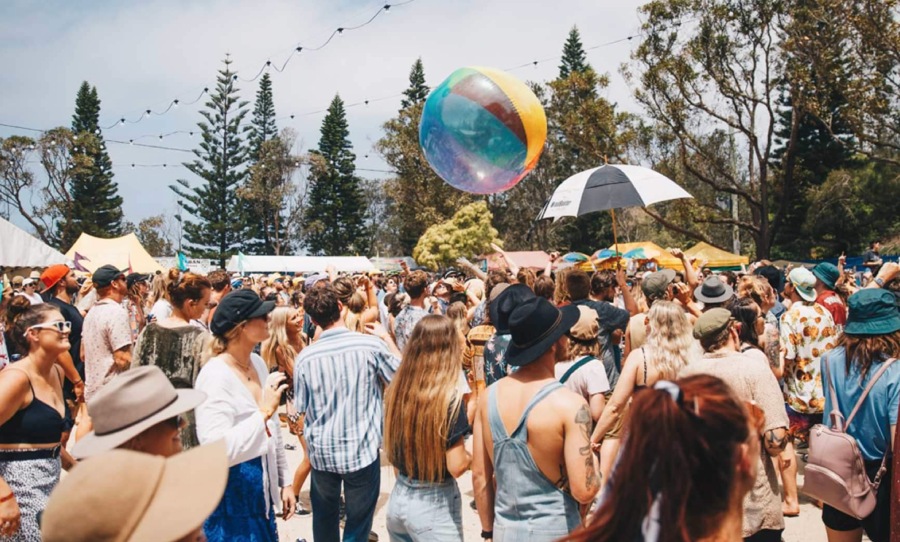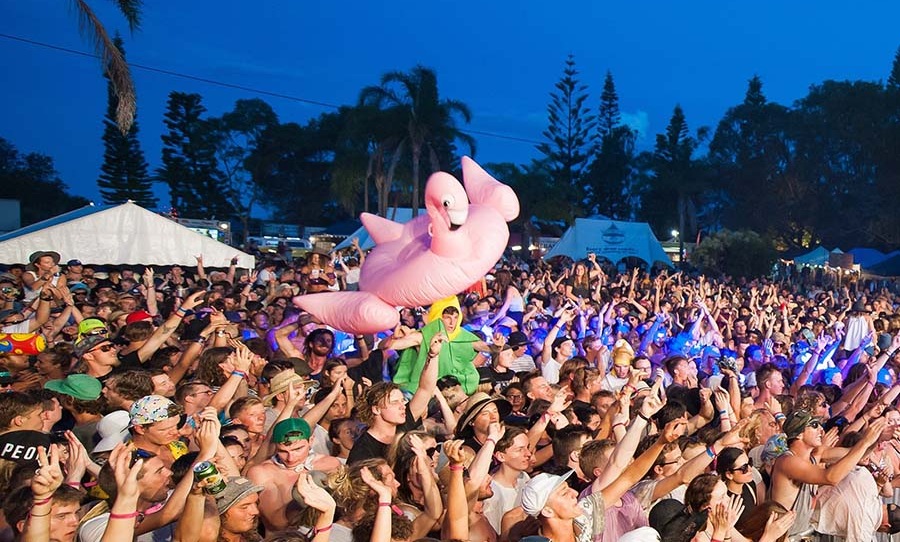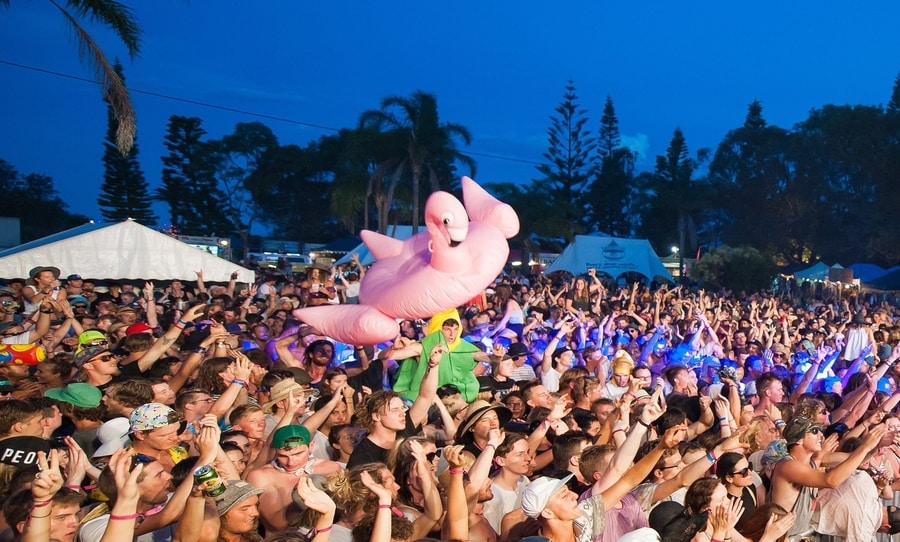Backstage at Festival of the Sun 2019 we sat down with Methyl Ethel, wrapping up the year that was and looking forward to the years yet to come.
Backstage at Festival of the Sun 2019, Jake Webb and I sit down for a chat. For all intents and purposes Jake is Methyl Ethel – if you’ve seen him play you’ll know there’s a five-piece live band, but as far as the project is concerned, everything is written and helmed by Jake.
Methyl Ethel are an Australian favourite, now signed to 4AD and releasing hits on an international level. Early this year they released their third album Triage, another collection of pitch perfect, left-of-centre rock songs. If anything else is in the bank, Jake assures us, he’s hoping it will be wildly different.
As we close the curtain on 2019, we tried to find out what Methyl Ethel could possibly be up to next.
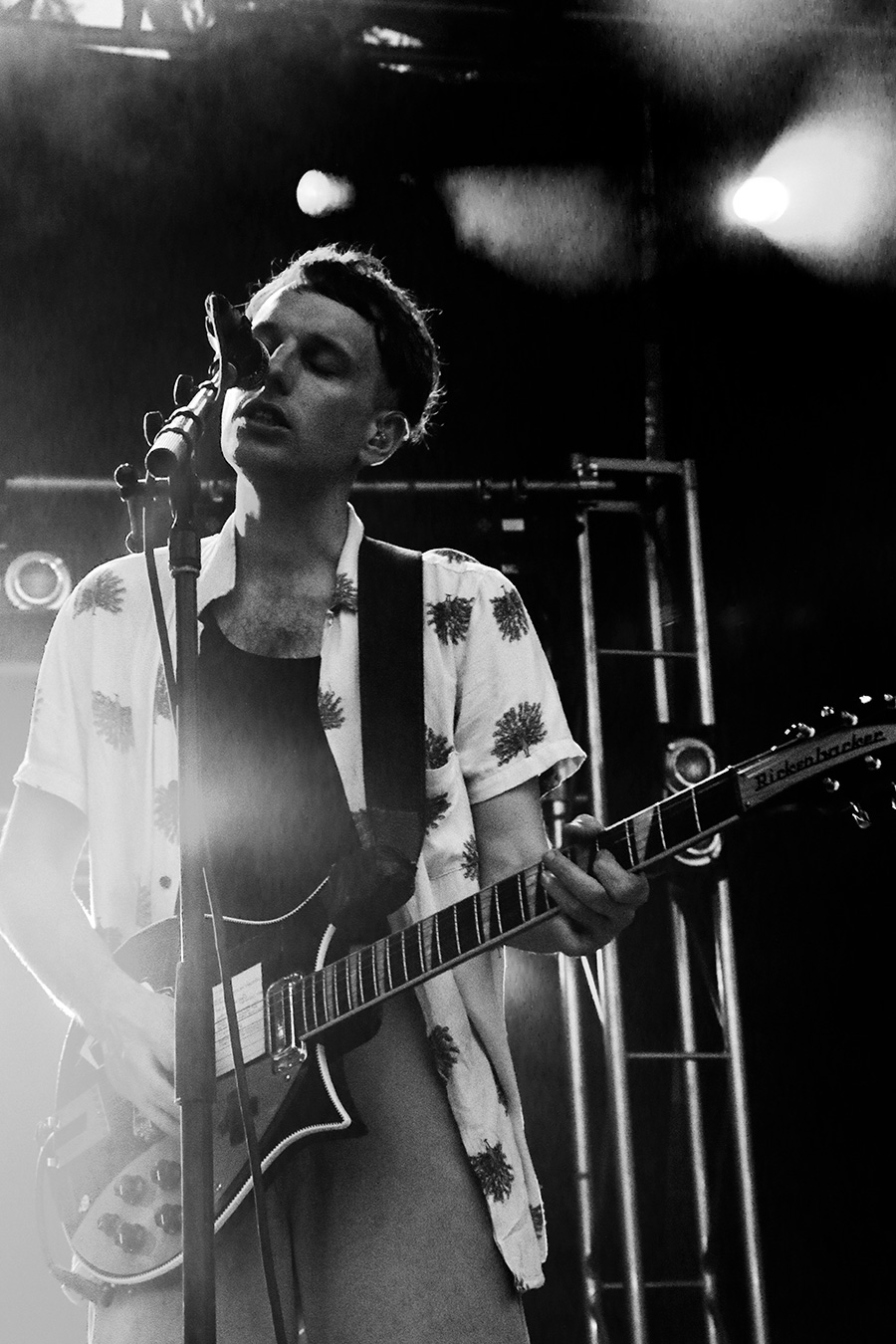
HAPPY: You’ve booked a bunch of shows touring solo, or as a duo. Have you done that before as Methyl Ethel?
JAKE: I started out playing solo – and when most people think solo they think acoustic guitar – but when I did it… it wasn’t that. I would play keys and and do a more electronic set.
HAPPY: So it’ll be like that in March?
JAKE: I’m not sure what I’ll do yet, but yeah.
HAPPY: To me that’s a bit of an antithesis to how the live band has been getting bigger and bigger over the years.
JAKE: I guess so, but it’s just for me really. To challenge myself into something different, you know?
HAPPY: You write everything solo, so is adapting those songs for a solo show kind of going back to the start of things?
JAKE: You’ve touched on something really good. I’m able to be more untethered, so I’m able to play songs that we’ve never played as a band before.
HAPPY: Really?
JAKE: Tonight we’re going to play one that I’ve been doing solo and as a duo, that we’ve never played before [as a full band]. We rehearsed it recently. So I sort of build new sound tools, I play my sampler, my drum machine, keys, things like that. There’s a lot of building that goes on. If I say “let’s play this song” it takes a bit of programming for the band, but for me it’s a lot simpler. I can be on the fly a bit more.
HAPPY: People I know who’ve done the band thing and gone solo, it’s always either super easy or a complete nightmare. Because it’s either ‘I wrote this on an acoustic guitar’ so it sounds good like that, or it’s ‘I have no fucking idea what to take away.’
JAKE: Well the first show I played in front of people as Methyl Ethel was an open mic night, but my stipulation was… I said to myself I would never do an acoustic set, ever. And I’m pretty sure to this day that I haven’t. Not that I’m against it, there’s just some part of it that I personally find to be… you can cheat the audience a little bit, you can fast-track people into reacting emotionally to things. If someone has a pretty voice and plays on an acoustic guitar, that’s kind of a little bit of a shortcut. That’s my thing, and with all due respect to acoustic artists, because I love listening to that.
HAPPY: That first show wasn’t just an acoustic guitar?
JAKE: I played in a two-piece, we just played as loudly as possible.
Jake pauses.
JAKE: I feel like I haven’t talked to anyone for a while, so you’re going to get some long winded answers.
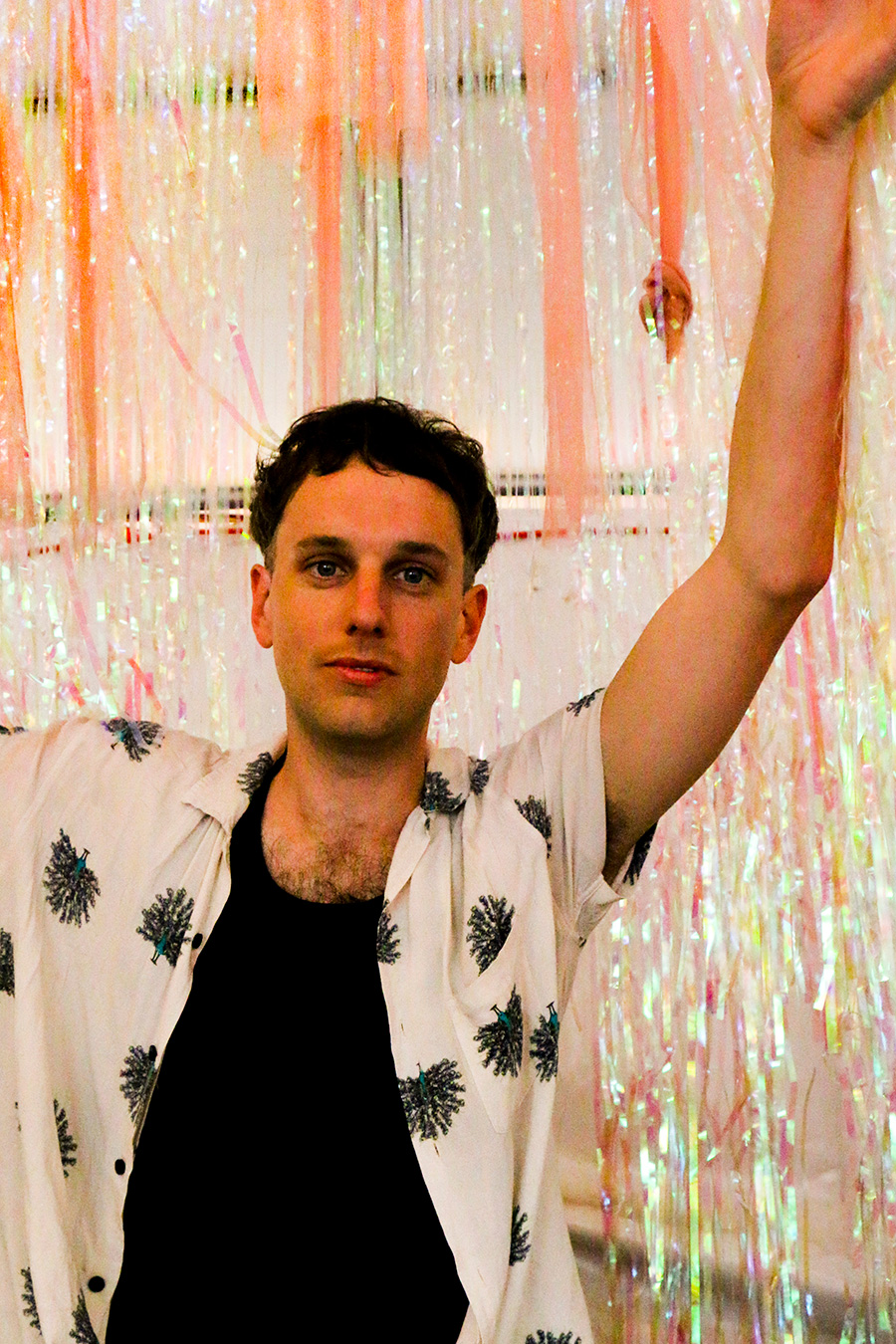
HAPPY: Bring it on, I love that. I actually did the old Google for past interviews, and one of the last ones you did was with us in February.
JAKE: I’ve been chatting to your team for quite some time I think. I think you’ve been very supportive of my music.
HAPPY: Well…
JAKE: Are you going to ask me the boring questions now?
HAPPY: There’s a boring question, then it will get interesting again.
JAKE: Good!
HAPPY: Are you writing again? Is another album coming?
JAKE: I don’t know. I’m getting a bit repetitive saying “I’m working on new music” but everyone’s doing that, whether it’s their full time job or not. We’ll see, I’m not not making music, but I hope that what everyone hears next is a step in a different direction somehow.
HAPPY: Is right after you release an album the worst or best time to start writing?
JAKE: At this point I think – I could answer that question, but I think I’ll keep it to myself – if I was to answer it very honestly. But I will say that the time after you release an album is a lot of manic episodes and despair, because it’s usually so long after [you recorded it], you know? I’m very privileged to have the support of a great record label to help us with everything, but I do envy at times people who are able to put something straight out on the internet.
HAPPY: Couldn’t you still do that, though? If you really wanted to?
JAKE: I could.
HAPPY: Under a different name?
JAKE: Hey, who knows? Maybe there is, maybe there will be soon.
HAPPY: There’s the old adage, you don’t know which songs people are going to love and which songs people are going to hate. Has working with 4AD helped solve that problem?
JAKE: I think it’s only natural to think about whether people are going to like it or not, and I think now that I have enough distance from the last record, I feel like right now I’ve grown on from worrying so much about that. But that’s probably because I’m not…
HAPPY: In it?
JAKE: Exactly. But I don’t think the label makes that any easier. You always want people to like things, whether I’m showing you my demos or not. I obviously want you to like it. I think that’s very conducive to making good music, I think you just have to separate it somehow.
HAPPY: Do you think your work is primarily for you?
JAKE: I think objectively, yes. It doesn’t really exist unless somebody else hears it though. I think you have to be conscious of your audience though. Or conscious of an audience, conscious that it’s going to be listened to, you know what I mean?
HAPPY: ‘Who is your work for?’ is a question I usually ask visual artists.
JAKE: Exactly.
HAPPY: And the last time I asked that, with someone named Abdul Abdullah, he was the first person to say “what do musicians say when you ask them that?” And I thought, I’ve never asked one.
JAKE: Well I don’t think my work is specifically for anybody, I guess anybody who can hear?
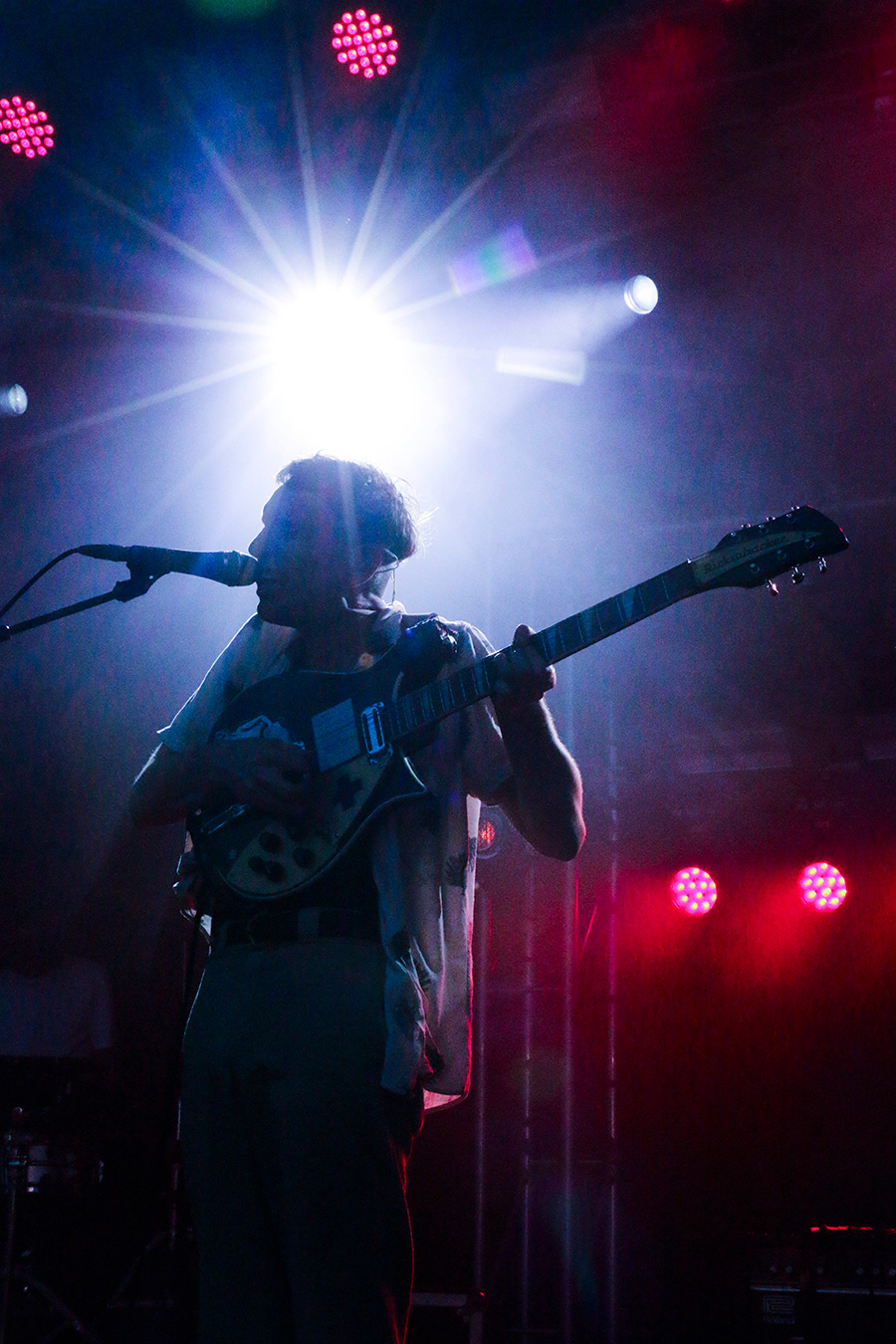
HAPPY: Anyone with ears?
JAKE: Well they might have ears but still might not be able to hear. But that’s not to say I make music for everybody. I want to try and pull back from the pretentiousness and just say that it’s only until it’s able to be heard. It’s not being made for an audience, specifically, maybe anyone who can speak English.
HAPPY: That ‘ready to be heard’ idea is interesting. Say someone takes two years to record something, who is it for during that time?
JAKE: I’m the audience first, you know? That’s exactly it. And in that way, and it’s the same with a visual artist, or maybe a screenwriter or someone who writes plays, it’s still in their head until it’s on the stage. It’s in my head until it’s coming out of speakers.
HAPPY: This is a big open-ended question, but are there other mediums of art which inspire your music? Literature, architecture?
JAKE: All of it, everything. And I would like to do it all, but more and more I’m realising I’m self-diagnosing myself as a control freak. I think I’ve realised that. Not in such a bad way, but I hope and I think I will branch out more in the next few years.
HAPPY: Maybe that question gets asked to people too early. As long as you’ve been doing Methyl Ethel, in the scheme of someone’s life it’s not that long.
JAKE: Yeah.
HAPPY: When I think of people who become really multidisciplinary… it can take decades.
JAKE: It’s just – apart from the fact that our government really isn’t fond of the arts – there are so many great artists out there, or great people doing great work, and really supportive networks just to get something seen or putting on some sort of show or exhibition… I feel like I’m privileged enough to be surrounded by so many creative people. More than the art itself, the people are the most inspiring. People who are just making things.
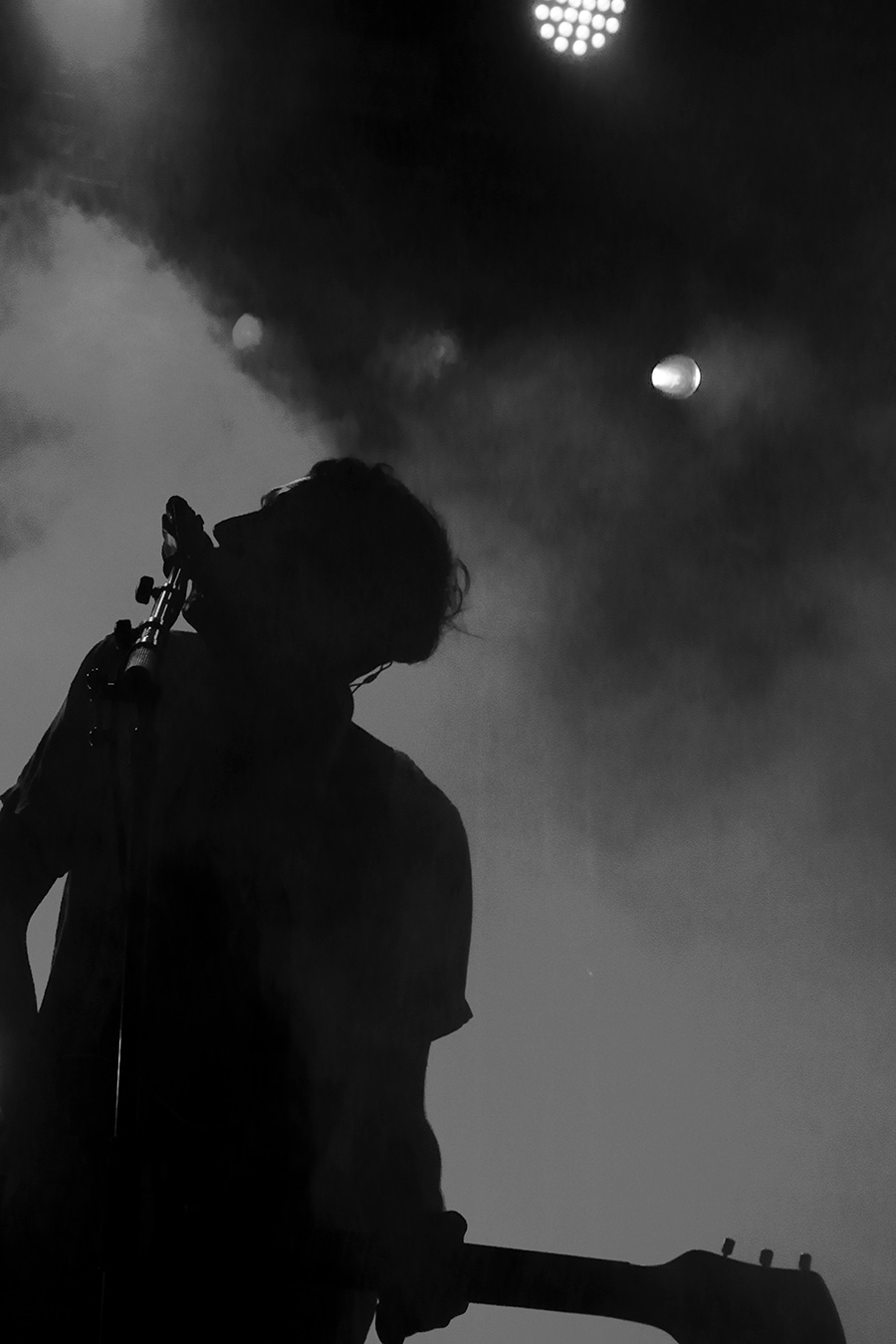
HAPPY: You should do that solo album. Just do it under a pseudonym.
JAKE: You don’t know what’s out there!
HAPPY: Since you mentioned the government, do you think that a period like this, where the arts aren’t really supported, is actually conducive to good art?
JAKE: I think, unfortunately, we’ve been oversaturated with biographical content, and we think too much about those things. I think people are always making great art, but things just fit the story too well. Like we don’t know The Beatles as they were anymore, we just know them by way of the countless documentaries that have been made about them… and their Wikipedia page. I don’t know, in my cynical view, it’s just a good story. And people are often having to push against things, but that isn’t pushing against anything. I’m being completely nihilistic, you know?
HAPPY: You think the autobiographical thing is happening in music too? As in, maybe someone’s celebrity is too much of a centre point to their work.
JAKE: I think no one’s life as they say it out of their mouth is true, so in a way people are living their own autobiography. So maybe that’s your answer.
HAPPY: Is your music your autobiography?
JAKE: It doesn’t mean anything, and it means everything… we’re getting too silly.
HAPPY: Any closing thoughts, then?
JAKE: My thoughts are completely open. And I’m sure I’ll read this, actually I’m sure I won’t, and that says nothing about Happy Mag – you can get it online, and in print! – but I’m sure I’ll disagree with everything I’ve said.

